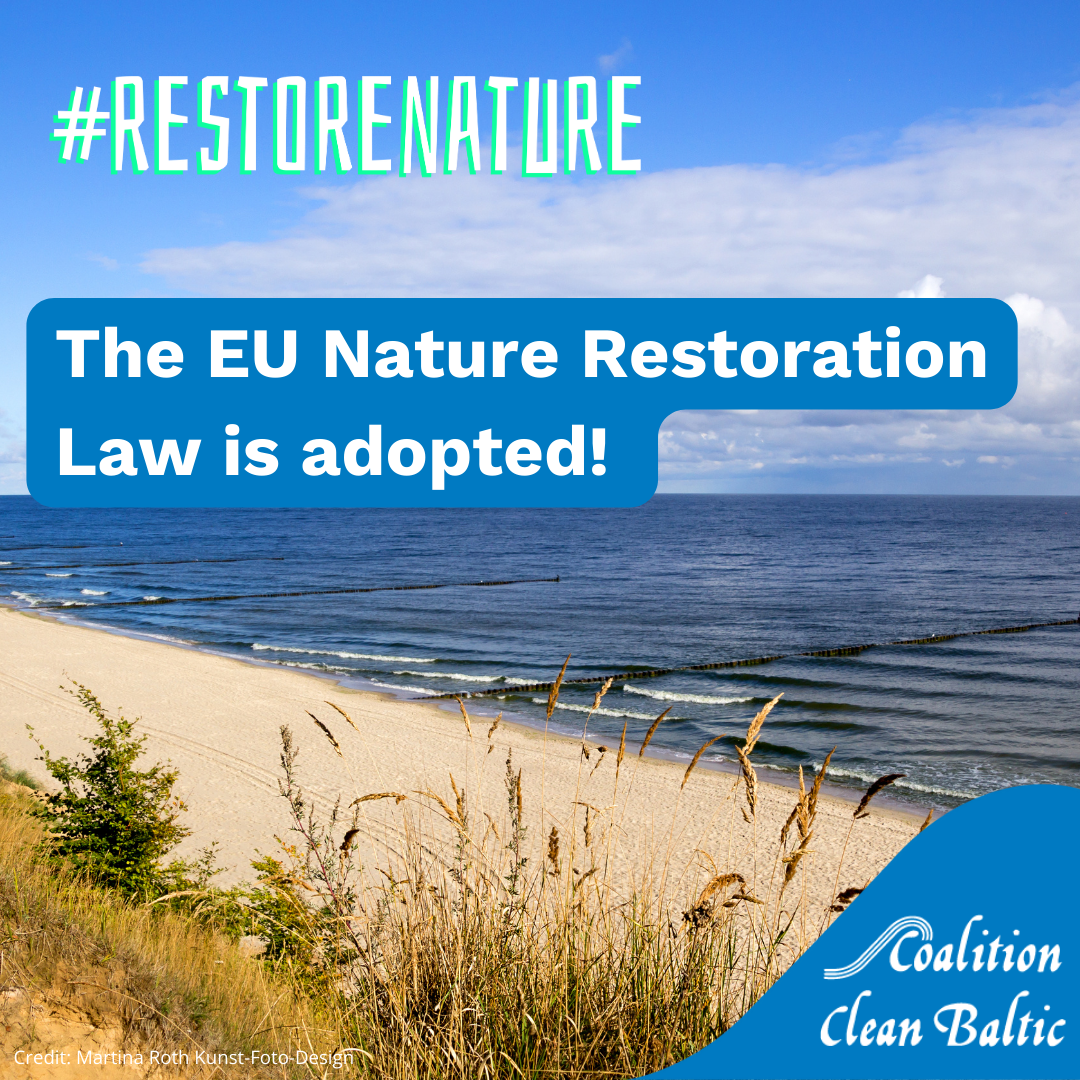Historic win for EU's nature: EU Council seals the deal on Nature Restoration Law
Today, after a nail-biting last discussion, the EU Environmental Council finally adopted the Nature Restoration Law (NRL), marking the last step for this long-awaited proposal to become law. This outcome is a huge win for Europe’s nature, climate action, citizens and future.

17 June 2024 - Member States followed through with their commitments and with a majority of 20 countries, representing 66.07% of the population, the law was officially endorsed, thanks to Austria’s Environment Minister Leonore Gewessler stepping up at the last minute, changing the country’s previous stance and safeguarding the law.
The #RestoreNature coalition, consisting of BirdLife Europe, ClientEarth, EEB and WWF EU, says: “Today’s vote is a massive victory for Europe’s nature and citizens who have been long calling for immediate action to tackle nature’s alarming decline. After years of intense campaigning and many ups and downs, we are jubilant that this law is now reality - this day will go down in history as a turning point for nature and society. Now, we need all hands on deck: Member States must properly implement this legislation without delay in their countries, in close collaboration with all involved stakeholders. At the end of the day, nature can rebounce, for the benefit of our climate, biodiversity and people!”
Nature and the Baltic Sea will benefit from the new EU Nature Restoration Law:


The law has faced one of the most tumultuous journeys in the history of EU legislation. After surviving an unprecedented and absurd disinformation campaign, aiming to destroy the NRL in the European Parliament, it faced the risk of being rejected at the very last step in the Environment Council. In the end, however, support for the law carried the day.
This is also a timely outcome to present at the upcoming UN Biodiversity Conference (CBD COP16) later this year, showing that Europe is willing to lead the way in tackling the climate and biodiversity crises by owning up to its global commitments. It is also a very clear message to the new EU Parliament and Commission, to not forget to keep biodiversity at the forefront of their agenda.
This result followed a massive public mobilisation. Over the past few years,
over a million signatures and messages from citizens, repeated calls from 6000+ scientists, 100+
businesses,
youth organisations, and
civil society from across numerous sectors have been made to defend the law and the integrity of the EU Green Deal. As the #RestoreNature coalition, we want to thank anyone who contributed to this result and made it happen.
***
More information
Ola Miklasińska
Communications Officer, Biodiversity, WWF European Policy Office
amiklasinska@wwf.eu
+32 456 37 60 64
Erica Gentili
Communications Officer, BirdLife Europe
erica.gentili@birdlife.org
+39 3492436096
Bianca Vergnaud
EU Communications Manager, ClientEarth
bvergnaud@clientearth.org
+32 471 88 70 95
Annick Hus
Communications Officer for Biodiversity, European Environmental Bureau
annick.hus@eeb.org
+32 490 40 62 53

